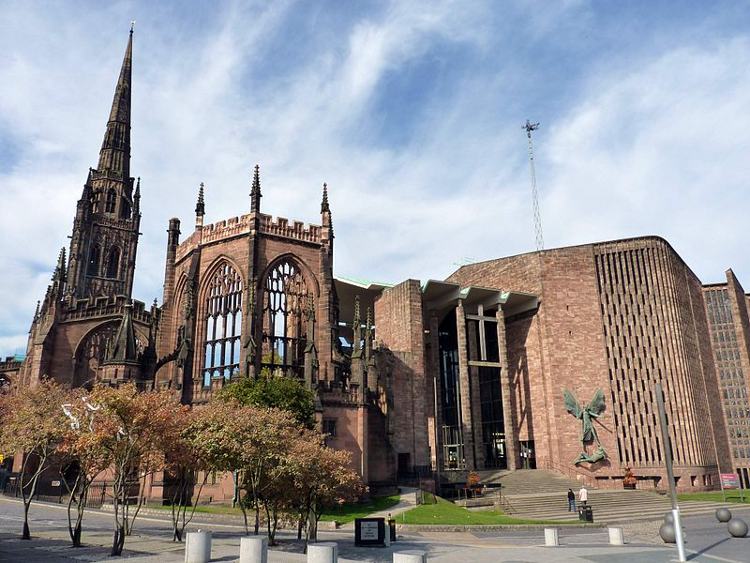Against my own good judgment, I’m going to offer a few thoughts sparked by this election cycle, which I don’t know whether to label a misery or a fascination. But a couple ideas have been nagging at me, and here they are.
1. I’m not sure when and how voting became such a sacrament of the conscience, especially for Christians, but that perspective on selecting candidates or participating in democracy seems tailor-made to frustrate people who demand that their political candidates line up exactly with their personal ideological positions. This seems to be a new thing and it’s tying people in knots because they’re agonizing over whether to support someone they find reprehensible or throw their vote toward third-party candidates who will not win the general election. And no one feels very satisfied with a “protest vote.”
It’s not that other people feel this dilemma any less; I’m bothered though that for many conservative Christians, there’s an added weight of theological responsibility never to vote for someone who [fill in the blank with a position on an issue]. This is – to me – idealistic to the point of naiveté. Every politician who’s ever served has had to step away from his/her personal and public political standards in order to pass vital legislation that accomplishes something to benefit a genuinely greater good. Anyone who claims otherwise is an obstructionist.
I’m happy to “vote my conscience,” which I understand to mean “voting in a way that most aligns with my theological outlook, moral priorities and civic values.” I do not view voting through a theologically absolute lens — that is, I select candidates who (I believe) offer the best chance to act in ways I would consider righteous, just, and good for the community as a whole. I must consider their candidacy and platform as a whole, an outlook which pushes me away from single-issue voting or simplistic party allegiance as an outgrowth of an absolutist outlook on political values.
2. My vote represents my priorities, not my absolutes. I think that’s what’s missing in the discussion I’m seeing this cycle. Specifically, some are saying that because they hold a pro-life position as the highest absolute (for example), and because the President has significant influence over powerful positions and policies which potentially could affect abortion access, these folks are willing to vote for a misogynist, racist narcissist because he’s promised to uphold pro-life policies. I struggle to understand this. I don’t think changing laws about abortion on the federal level is worth the risk of a Trump presidency, or his horrible baggage of hatred toward immigrants, crony capitalism, or obvious ill-treatment of other humans. And if you didn’t believe that before Saturday’s evidence came to light, now I don’t really see how you have much excuse.
But even aside from that, Trump has been a terrible choice this entire time. He consistently talks as if being president is like being CEO of his company where he can make decisions and immediately implement them above the wishes or advice of anyone who works for him. Congress does not “work for” the President. The Supreme Court justices do not “work for” the President. He is supposed to be a servant of the American people, heading up the executive branch of a large government. We can argue over how large or powerful the federal government should be, but Trump clearly has zero understanding of how our government works in general, or how the actions of our chief executive can have profound repercussions across the world.
The man as an individual is reprehensible. But I’m tired of everyone just now deciding to be shocked and disgusted by what has been on display from him for years. As a candidate, at the very outset of the election cycle, he should have never been vetted for the ballot due to his total ignorance of government structures and policies, and his egotistical inability to accept that he cannot change those structures by force of his will. He could be a church saint and I wouldn’t vote for someone this uninformed about basic foreign and domestic policy.
3. Let’s talk about this Supreme Court justices thing. It’s popular to call HRC “Killary” and then wax eloquent about how terrible she is and how both candidates are the same pile of crap and how the only thing that matters is who’s in office to appoint Supreme Court. There are too many logical fallacies in that last sentence to address so I’m going to focus on the Supreme Court argument. Yes, I care very much about those 9 justices. They do indeed “make law.” You can rail against it all you want, but the SCOTUS is never going to return to a strict constructionist interpretation of the Constitution. That horse got out the barn decades ago during the Civil Rights movement and we’re not going to put him back in. As a woman who wasn’t even granted the right to vote until 100 years ago, I happen to support the approach that the Constitution must be interpreted in ways that acknowledge current realities, rather than shackling us to the ideas of rich white male Deists from the 1790s.
But that doesn’t mean that the Court should be stacked 6-3 in favor of either side. I believe that, given the checks and balances of Congress and the President working together to find justice candidates that both can agree on, we will end up with moderates on the Court. And I’m fine with that.
Obama’s pick for SCOTUS would have been an excellent choice for the Republicans to support had they not been such total assholes to Obama during the final year of his presidency. (Great job, guys. Way to show how you care about the nation above your own political obstructionism.)
Please do not crucify mankind on a cross of SCOTUS justices. Please do not sacrifice everything you know to be a moral priority in your life so that you can vote for a man as morally disgusting in his views as Donald Trump. Please do not feed his racist, homophobic, anti-immigrant, misogynist base any further.
And for the love of Christ, please do not defend your vote of either candidate as something you do as an act of obedience to Jesus. I have no idea whom Jesus would vote for. Let’s not presume we’re on the winning side here.
4. One last thing – Being pro-choice isn’t the same as being a murderer. It’s dangerous to collapse the chain of responsibility so that you can call Hillary Clinton “Killary” and label her a baby-killer who’s directly responsible for x million abortions per year. I’m glad pro-life people are passionate about babies’ lives. That’s a good impulse and I support it. But the people who choose to abort are the women themselves, not the lawmakers. Women were getting illegal abortions before Roe v Wade brought the procedure out of dark alleys into clean hospital rooms. There are legitimate pregnancies that need to be terminated (unless you take the hardline position that not even the life of a mother is more valuable than an unborn fetus, a position I cannot support).
I am pro-life in my sentiments but pro-choice when it comes to the law. What I mean is this: I would not overturn RvW, given the chance. I do not think prohibition solves problems. It usually drives the problem underground, making it harder to deal with in the long run.
Abortion is driven by complex social and economic factors, including poverty and a woman’s feeling of economic security; the disintegration of family units so that women or couples do not feel they have the support to raise a child; and the stigma (very strong in Christian circles, let’s be honest) that premarital pregnancy is one of the worst failures of morality a young person can fall into. Further, adoption processes can be hard to understand and emotionally painful and not something we’re willing to discuss openly as a society outside of a crisis pregnancy clinic.
With all of these factors in play, attempting to stop abortions by simply making them illegal is short-sighted. It’s an idea born from privilege, because white middle-class people with good health care and stable family networks are able to work out ways to care for even an “oops!” pregnancy of one of their relatives. They can also afford the exorbitant fees necessary to adopt children. They can absorb another person into the household without forcing all the others to go hungry. I realize that “privilege” also drives abortions, for women who simply do not want to be bothered by a pregnancy. But those women have always had access to abortion, and even if it were illegal, do you really think they would lose it? No. An abortion ban affects primarily the poor and working class. Rich people will always have access to what they want.
For those reasons, I personally discourage women from terminating healthy pregnancies (please consider adoption!) yet refuse to make abortion law a factor in my voting. Christians have been whipped into a frenzy by this issue, and have lost sight of a balance of values that should represent someone who claims allegiance to the Kingdom.
I am not willing to crucify my conscience on the cross of abortion law, by using this weak defense as a reason to support the Republican nominee. The party had a chance — many chances! — to select a reasonable candidate. Or at least one who, while politically unreasonable (*coughs* Ted Cruz *coughs*) not morally reprehensible. And the Republican party as a whole, both in its leadership and its membership, has utterly broken apart and failed to offer any moral or civic leadership.
This post is already too long, or I’d wade into the myth that government is bad (really? defend that from Scripture and/or history, please) or the ways in which the Republican Party sowed the seeds for this disaster through its race-bating campaigns from Nixon forward.
So I’ll end with this: Evangelicalism has been duped into becoming a stooge to empower men who have no interest in the values Evangelicals claim as primary. This past weekend has been a chilling reminder that the loudest Evangelical (male) voices don’t represent even the most basic understanding of what sexual assault means, or why their only proper response to Trump’s disgusting rape-talk should be condemnation, if these leaders wish to maintain credibility. But elections are never about credibility; they’re about power. And ever since Jerry Falwell sold the church a bunch of pottage about the Moral Majority in 1980, the Evangelical wing has been drunk on the idea of political power. That was a foolish, dangerous mistake, and its consequences are about to come crashing home, regardless of who wins the election on November 7th.




Got a comment?